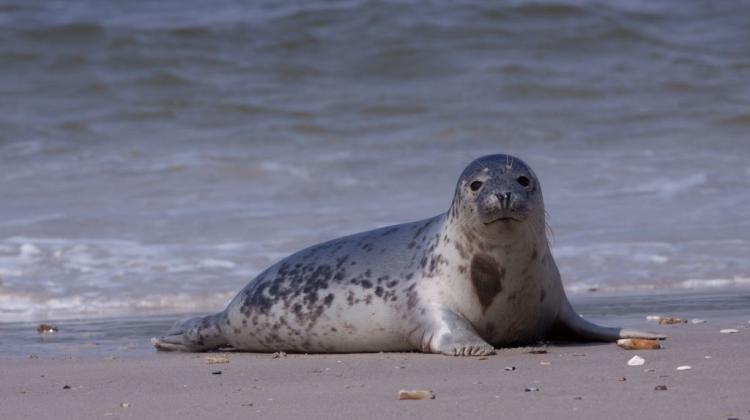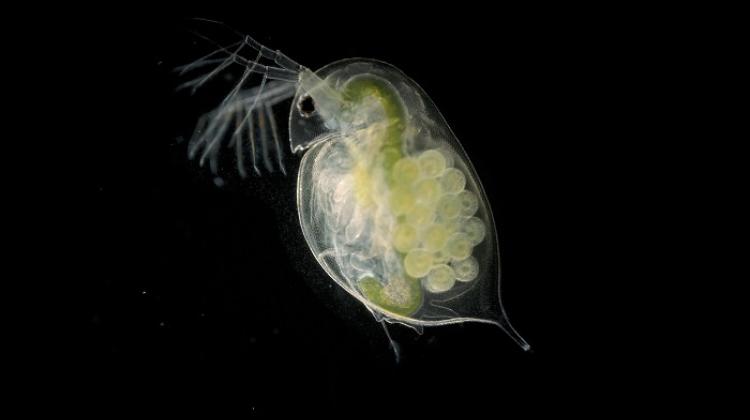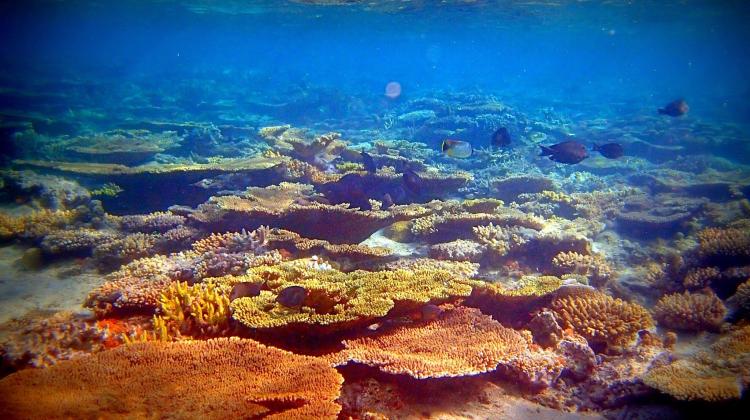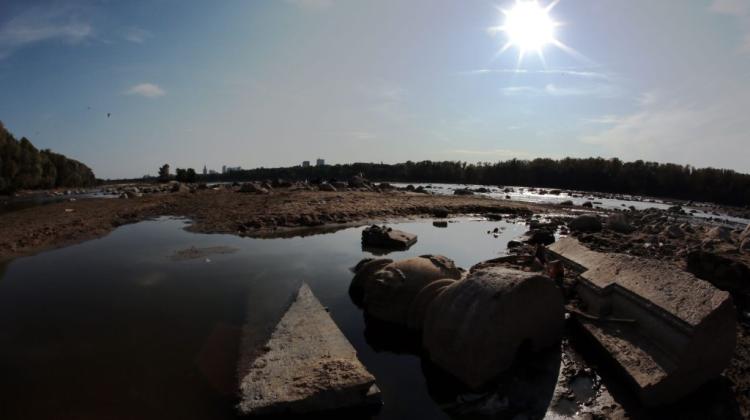Bird's eye view of 70 seals

More than 70 grey seals could be seen in the region of the mouth of the Vistula River. Photos of animals were taken during the flight over the mouth of the Vistula as part of the WWF Polska activities.
WWF Polska representatives reported in the release sent to PAP that during the flight on April 15 they were able to confirm the presence of about 70 seals. The animals were resting on sandbar near Świbno and Mikoszewo. "I do not know how long the seals will remain here. For nearly three years we have been seeing them here quite often, but their numbers range from a few to a few dozen animals. Larger groups, such as the one recently observed, are rare, and the record observation - more than 90 seals - was last year" - naturalists noted in the release.
WWF Polska reminded that the reproduction period had just ended of the Baltic population of grey seals. "Both caring for the offspring and feeding of young and recently completed mating season, were a great effort for many animals. Now is the time to regenerate and rebuild energy reserves. Seals begin intensive feeding. In search of food, they are looking for large schools of fish group in places of their occurrence" - explained in the release.
Seals can use sandbars at the time of moulting, which begins in May and ends in June. During that period, these mammals shed fur and spend most of the time out of the water .
"Each observation of seals should be reported to the WWF Blue Patrol, phone number 795 536 009, to or the Marine Station of the Institute of Oceanography, University of Gdańsk in Hel, phone number 601 889 940 - said Katarzyna Pietrasik of WWF Polska. - In the coming weeks , there is also a high probability of observing young seals born this year. Last week, the Blue Patrol volunteers received a report of a +kid seal+ in Leba. Remember that during the observation you should not approach the animal, because such meeting is a source of stress for seals. We can help the animal only by leaving it in peace and informing WWF volunteers or the Marine Station".
The "Protection of habitats of marine mammals and birds" is co-financed by the European Union from the European Regional Development Fund under the Operational Programme Infrastructure and Environment.
PAP - Science and Scholarship in Poland
lt/ ula/
tr. RL
Przed dodaniem komentarza prosimy o zapoznanie z Regulaminem forum serwisu Nauka w Polsce.
















